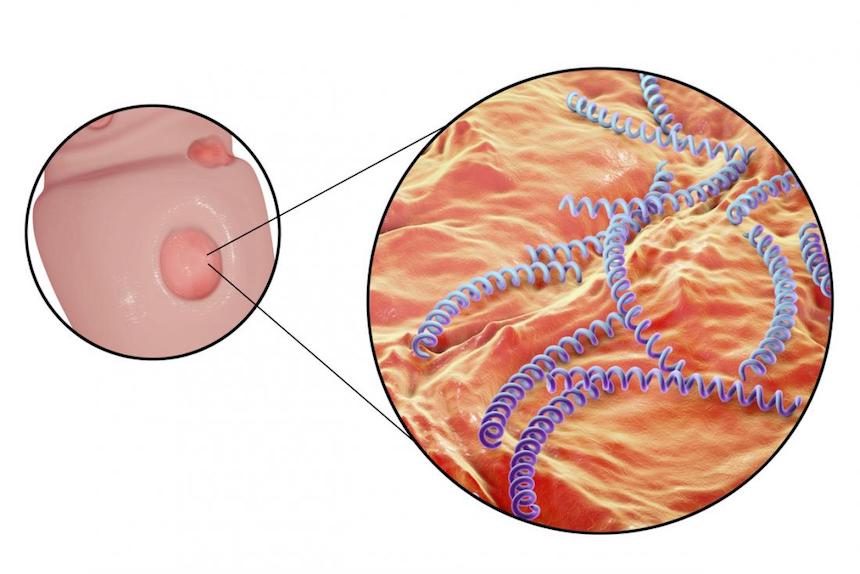

Last year, the number of cases of chlamydia, gonorrhoea, and syphilis in the USA surpassed 2 million for the first time. The US Centres for Disease Control and Prevention (CDC) Sexually Transmitted Disease Surveillance 2016 report presented the rate of these infections by age, sex, race and ethnicity, and geography, and found that each infection saw overall increases since 2015: the rate of chlamydia increased by 4·7%; gonorrhoea increased by 18·5%; and primary and secondary syphilis increased by 17·6%.
Syphilis is particularly concerning because the disease increases the risk of HIV transmission, and men who have sex with men accounted for most cases in 2016. Although the rate among men continues to increase, between 2015 and 2016 the number of cases in women increased sharply, by 35·7%. In parallel, the rate of congenital syphilis—which can lead to stillbirth, infant death, and infant disorders such as bone deformities, neurological impairment, and deafness—increased by 27·6%.
Screening of at-risk populations accompanied by prompt, appropriate treatment is the backbone of the fight against sexually transmitted infections (STIs). The report points out that in recent years, more than half of state and local STI programme budgets have faced cuts that are likely to have led to decreased access to diagnosis and treatment services. These findings also prompt consideration of the care that pregnant women receive. The US Preventive Services Task Force recommends that all pregnant women be screened for syphilis at their first prenatal visit. UNICEF has estimated that between 2010 and 2015, around 97% of US pregnant women attended at least four antenatal visits. While high by international standards, increases in congenital syphilis might point to the need to better integrate STI screening into prenatal care.
The Affordable Care Act mandates coverage for key STI preventive services for at-risk populations, including STI prevention counselling and chlamydia, gonorrhoea, and syphilis screening. These alarming findings are a stark reminder that now is the time to defend and strengthen preventive health services in the USA.
Perspective from The Lancet

